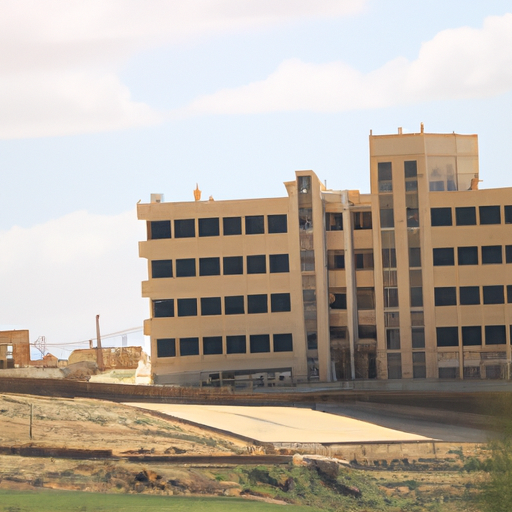معقب دوائر حكومية بالانجليزي

معقب خروج نهائي والاقامة منتهية
فبراير 14, 2023
معقب دبي
فبراير 14, 2023مقدمة
Government Circuit Monitor is a profession that involves monitoring the performance of government circuits. Government circuits are the systems and processes that are used to deliver public services. Government Circuit Monitors are responsible for ensuring that these systems and processes are functioning properly and efficiently. They also ensure that the public is receiving the services they need in a timely and cost-effective manner. Government Circuit Monitors use a variety of tools and techniques to assess the performance of government circuits, including data analysis, surveys, interviews, and focus groups. They also provide feedback and recommendations to government officials to help improve the performance of government circuits.
Exploring the Benefits of Government Oversight in the 21st Century
In the 21st century, government oversight is essential for ensuring the safety and well-being of citizens. Government oversight provides a number of benefits, including increased transparency, improved accountability, and better protection of citizens’ rights.
Government oversight helps to ensure that public funds are used responsibly and that public services are delivered efficiently. It also helps to ensure that public officials are held accountable for their actions and that citizens’ rights are respected. Government oversight can also help to prevent corruption and abuse of power.
Government oversight also helps to ensure that public services are delivered in a timely and effective manner. Government oversight can help to ensure that public services are delivered in a way that is fair and equitable. Government oversight can also help to ensure that public services are delivered in a way that is cost-effective and efficient.
Government oversight can also help to ensure that public services are delivered in a way that is safe and secure. Government oversight can help to ensure that public services are delivered in a way that is free from discrimination and harassment. Government oversight can also help to ensure that public services are delivered in a way that is environmentally friendly.
Government oversight can also help to ensure that public services are delivered in a way that is accessible to all citizens. Government oversight can help to ensure that public services are delivered in a way that is inclusive and equitable. Government oversight can also help to ensure that public services are delivered in a way that is responsive to the needs of citizens.
Government oversight can also help to ensure that public services are delivered in a way that is transparent and accountable. Government oversight can help to ensure that public services are delivered in a way that is open and accountable to citizens. Government oversight can also help to ensure that public services are delivered in a way that is free from corruption and abuse of power.
Overall, government oversight is essential for ensuring the safety and well-being of citizens in the 21st century. Government oversight provides a number of benefits, including increased transparency, improved accountability, and better protection of citizens’ rights. Government oversight can help to ensure that public services are delivered in a way that is fair, equitable, cost-effective, efficient, safe, secure, accessible, inclusive, responsive, transparent, and accountable.
Examining the Impact of Government Regulations on Businesses
Government regulations can have a significant impact on businesses, both large and small. Regulations can affect a business’s ability to operate, its profitability, and its ability to compete in the marketplace.
Regulations can be imposed on businesses in a variety of ways, including through taxes, labor laws, environmental regulations, and consumer protection laws. These regulations can be costly for businesses to comply with, and can limit their ability to operate freely.
Taxes are one of the most common forms of government regulation. Taxes can be imposed on businesses in the form of income taxes, sales taxes, and property taxes. These taxes can be costly for businesses to pay, and can reduce their profits.
Labor laws are another form of government regulation that can affect businesses. These laws can limit the number of hours employees can work, require employers to provide certain benefits, and set minimum wages. These laws can be costly for businesses to comply with, and can limit their ability to hire and retain employees.
Environmental regulations are also a form of government regulation that can affect businesses. These regulations can require businesses to reduce their emissions, use renewable energy sources, and take other steps to protect the environment. These regulations can be costly for businesses to comply with, and can limit their ability to operate.
Finally, consumer protection laws are another form of government regulation that can affect businesses. These laws can require businesses to provide accurate information about their products and services, protect consumers from fraud and deceptive practices, and ensure that products are safe for consumers to use. These laws can be costly for businesses to comply with, and can limit their ability to compete in the marketplace.
In conclusion, government regulations can have a significant impact on businesses, both large and small. Regulations can be costly for businesses to comply with, and can limit their ability to operate freely. It is important for businesses to understand the regulations that apply to them and to take steps to comply with them in order to remain competitive in the marketplace.
Analyzing the Effectiveness of Government Oversight in Different Sectors
Government oversight is an important tool for ensuring that public funds are used responsibly and that public services are delivered effectively. It is also essential for maintaining public trust in government and its institutions. Government oversight can take many forms, from direct oversight of government agencies to indirect oversight through independent bodies such as auditors and inspectors.
The effectiveness of government oversight depends on the sector in which it is applied. In some sectors, such as healthcare, government oversight is essential for ensuring that public funds are used appropriately and that services are delivered in a timely and effective manner. In other sectors, such as finance, government oversight is necessary to ensure that financial institutions are operating in a safe and sound manner and that consumers are protected from fraud and abuse.
In addition, government oversight can be used to ensure that public services are delivered in a cost-effective manner. For example, government oversight can be used to ensure that public services are delivered in a way that maximizes efficiency and minimizes waste. Government oversight can also be used to ensure that public services are delivered in a way that is equitable and fair to all citizens.
Finally, government oversight can be used to ensure that public services are delivered in a way that is consistent with the values and goals of the government. For example, government oversight can be used to ensure that public services are delivered in a way that is consistent with the government’s commitment to environmental protection or to social justice.
Overall, government oversight is an important tool for ensuring that public funds are used responsibly and that public services are delivered effectively. The effectiveness of government oversight depends on the sector in which it is applied, and it can be used to ensure that public services are delivered in a cost-effective, equitable, and consistent manner.
Investigating the Role of Government Oversight in Ensuring Transparency
Government oversight is essential for ensuring transparency in any organization or institution. It is the responsibility of government agencies to monitor and regulate the activities of organizations and institutions to ensure that they are operating in a transparent and ethical manner. Government oversight can take many forms, including audits, investigations, and inspections.
Audits are conducted by government agencies to assess the accuracy and reliability of financial statements and other documents. Audits can also be used to identify any potential areas of fraud or mismanagement. Investigations are conducted to uncover any potential wrongdoing or illegal activities. Inspections are conducted to ensure that organizations and institutions are following applicable laws and regulations.
Government oversight is also important for ensuring that organizations and institutions are providing accurate and timely information to the public. Government agencies can require organizations and institutions to disclose information about their operations, finances, and other activities. This helps to ensure that the public is aware of any potential issues or problems that may exist.
Government oversight is also important for ensuring that organizations and institutions are held accountable for their actions. Government agencies can impose fines or other penalties on organizations and institutions that fail to comply with applicable laws and regulations. This helps to ensure that organizations and institutions are held accountable for their actions and that the public is aware of any potential issues or problems.
Overall, government oversight is essential for ensuring transparency in any organization or institution. Government agencies have the responsibility to monitor and regulate the activities of organizations and institutions to ensure that they are operating in a transparent and ethical manner. Government oversight can take many forms, including audits, investigations, and inspections, and can help to ensure that organizations and institutions are providing accurate and timely information to the public and are held accountable for their actions.
Understanding the Challenges of Implementing Government Oversight
Government oversight is an important part of ensuring that public funds are used responsibly and that government programs are effective and efficient. However, implementing government oversight can be a challenging process.
One of the main challenges of implementing government oversight is the complexity of the process. Government oversight involves a variety of stakeholders, including government agencies, elected officials, and the public. Each of these stakeholders has different interests and perspectives, and it can be difficult to ensure that all of their needs are met. Additionally, government oversight often involves complex legal and regulatory requirements, which can be difficult to navigate.
Another challenge of implementing government oversight is the need for transparency. Government oversight requires that all stakeholders have access to information about the process and its outcomes. This can be difficult to achieve, as some stakeholders may be reluctant to share information or may not have the resources to do so. Additionally, government oversight often requires the collection and analysis of large amounts of data, which can be time-consuming and costly.
Finally, implementing government oversight can be difficult due to the potential for political interference. Government oversight is intended to ensure that public funds are used responsibly and that government programs are effective and efficient. However, elected officials may be tempted to use their influence to shape the outcomes of government oversight in order to benefit their own interests. This can lead to a lack of trust in the process and can undermine its effectiveness.
Overall, implementing government oversight can be a challenging process. It requires careful coordination between a variety of stakeholders, transparency, and a commitment to avoiding political interference. However, with the right approach, government oversight can be an effective tool for ensuring that public funds are used responsibly and that government programs are effective and efficient.
Examining the Role of Technology in Enhancing Government Oversight
Technology has become an increasingly important tool for government oversight. It has enabled governments to monitor and track activities more effectively, and to detect and prevent fraud and corruption.
Technology has enabled governments to collect and analyze data more quickly and accurately. This has allowed them to identify patterns of behavior that may indicate fraud or corruption. It has also enabled governments to detect and investigate suspicious activities more quickly and efficiently.
Technology has also enabled governments to improve transparency and accountability. By making information more accessible, governments can ensure that citizens are aware of the activities of their government and can hold them accountable for their actions.
Technology has also enabled governments to improve the efficiency of their operations. By automating processes, governments can reduce costs and improve the quality of services they provide. This can help to reduce waste and improve the effectiveness of government oversight.
Finally, technology has enabled governments to better engage with citizens. By providing citizens with access to information and services, governments can ensure that citizens are informed and involved in the decision-making process. This can help to ensure that government oversight is effective and that citizens are able to hold their government accountable.
Overall, technology has played an important role in enhancing government oversight. By enabling governments to collect and analyze data more quickly and accurately, to detect and investigate suspicious activities, to improve transparency and accountability, and to better engage with citizens, technology has helped to ensure that governments are able to effectively monitor and track activities and to prevent fraud and corruption.
Investigating the Role of Citizen Participation in Government Oversight
Citizen participation in government oversight is an important factor in ensuring that government institutions are held accountable for their actions. Citizen participation can take many forms, including attending public meetings, voicing opinions on government policies, and engaging in advocacy activities.
Research has shown that citizen participation can have a positive impact on government oversight. Studies have found that when citizens are involved in the oversight process, government institutions are more likely to be held accountable for their actions. This is because citizens can provide an independent perspective on government activities and can help to identify potential problems or areas of improvement.
Citizen participation can also help to ensure that government institutions are transparent and accountable. When citizens are involved in the oversight process, they can help to ensure that government institutions are open and honest about their activities. This can help to ensure that government institutions are held to a higher standard of accountability.
Finally, citizen participation can help to ensure that government institutions are responsive to the needs of the public. When citizens are involved in the oversight process, they can help to ensure that government institutions are responsive to the needs of the public and are taking steps to address their concerns. This can help to ensure that government institutions are providing the best possible services to the public.
Overall, citizen participation in government oversight is an important factor in ensuring that government institutions are held accountable for their actions. Research has shown that citizen participation can have a positive impact on government oversight, and can help to ensure that government institutions are transparent, accountable, and responsive to the needs of the public.
Exploring the Role of International Organizations in Government Oversight
International organizations play an important role in government oversight. These organizations are responsible for monitoring the activities of governments and ensuring that they are in compliance with international laws and standards. They also provide a platform for governments to discuss and resolve issues of mutual concern.
The United Nations (UN) is the most prominent international organization in this regard. It is responsible for monitoring the activities of governments and ensuring that they are in compliance with international laws and standards. The UN also provides a platform for governments to discuss and resolve issues of mutual concern.
The International Monetary Fund (IMF) is another important international organization in government oversight. The IMF is responsible for monitoring the economic policies of governments and ensuring that they are in compliance with international standards. The IMF also provides a platform for governments to discuss and resolve economic issues.
The World Bank is another important international organization in government oversight. The World Bank is responsible for monitoring the development policies of governments and ensuring that they are in compliance with international standards. The World Bank also provides a platform for governments to discuss and resolve development issues.
The Organization for Economic Cooperation and Development (OECD) is another important international organization in government oversight. The OECD is responsible for monitoring the economic policies of governments and ensuring that they are in compliance with international standards. The OECD also provides a platform for governments to discuss and resolve economic issues.
In conclusion, international organizations play an important role in government oversight. They are responsible for monitoring the activities of governments and ensuring that they are in compliance with international laws and standards. They also provide a platform for governments to discuss and resolve issues of mutual concern.



